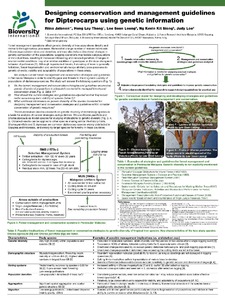Ðe án thí diem REDD+ là gì?: Các loai hình de án thí diem REDD dua trên các hoat d og thí diem o Indonesia
This infobrief provides an early snapshot of 17 REDD+ pilots under development in Indonesia in mid 2009. There is great variety in and experimentation by the proponents of REDD+ pilots.
Décentralisation fiscale et redistribution des bénéfices issus de la forêt en République Démocratique du Congo
Del discurso a la política: la interfase práctica de los derechos formales y consuetudinarios sobre la tierra y los bosques
Derrière les mots: décentralisation, conservation et démocratie locale
El estado de las negociaciones REDD: Puntos de consenso, opciones para seguir avanzando y necesidades de investigación para respaldar el proceso
The United Nations Collaborative Programme on Reducing Emissions from Deforestation and Forest Degradation in Developing Countries (UN-REDD) commissioned this report from the Center for International Forestry Research (CIFOR) to summarize the current state of negotiations towards a decision in Copenhagen, specifically outlining areas of consensus, options for resolving areas where consensus has
Establishing special use zones in national parks: can it break the conservation deadlock in Indonesia?
Financial governance and Indonesia’s Reforestation Fund during the Soeharto and post-Soeharto periods, 1989–2009: a political economic analysis of lessons for REDD+
This study analyses Indonesia’s experience with its Reforestation Fund, and examines implications for REDD+. The Reforestation Fund (Dana Reboisasi, DR) is a national forest fund financed by a volume-based timber levy to support reforestation and forest rehabilitation. Since 1989, the fund has had receipts of US $5.8 billion.
Financing sustainable small-scale forestry: policy issues and lessons from developing national forest financing strategies in Latin America
Increasing forest financing requires better communication and understanding between the forestry and finance sectors. This can take the form of joint development of financing strategies, instruments and business cases. Limited forest financing is often less about money availability than about poor access.
Forest carbon database: a web-based carbon stock data repository and exchange system
Gender, institutions and sustainability in the context of forest decentralisation reforms in Latin America and East Africa
Women’s participation in decision making at the user-group level and in forest committees has been demonstrated to have a positive impact on forest sustainability. For example, women’s participation enhances forest regeneration and reduces illegal harvesting through improved monitoring.


